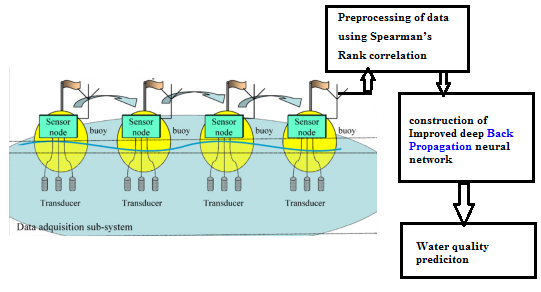
In coastal lagoons, eutrophication is a significant ecological and environmental problem. The majority of the pollution and deterioration problems that coastal zones and their ecosystems face are due to human influence through urbanization and industrialization. In this research, evaluations of water quality were made throughout a few lagoons in India during both the wet and dry seasons to establish their suitability for harboring aquatic life and the impact of seasonality on their quality. In order to reduce the effect of environmental influences on sensor based on nanoparticle sensitive film, an enhanced deep Back Propagation (BP) neural system was developed. The incompatibility between high performance and low calculation time was typically found in today’s modern sensor compensation techniques. Moreover, higher recognition errors were always the outcome of weak self-learning abilities. To solve these problems, a 16-layer deep BP neural network model was developed after hyper parameter searching. In Addition, the stochastic gradient descent (SGD) method and the mini-batch method were employed to achieve a proper balance between model performance and training time difficulties. The enhanced deep BP neural network was a great compensation solution for the sensor used in complicated environments due to its self-learning and self-adaptability. The proposed method is named as Imp_BPNN_SGD is analyzed in terms of various parameters and found that it achieves 35.6% of RMSE, 21.6% of MAE, 19.6% of RAE and 97.2% of D2
Total file downloads: 5